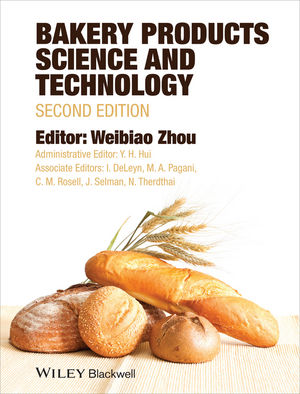GFF's Perspective on the New Dietary Guidelines for Americans
Americans are eating entirely too many calories and not choosing enough nutritious foods in their daily diets, says contributing columnist Judi Adams. The 2010 Dietary Guidelines for Americans recommends foods that can help correct this bad habit.

On Jan. 31, Katherine Sebelius, secretary of the Department of Health and Human Services (HHS), Washington, D.C., and agriculture secretary Tom Vilsack announced The Dietary Guidelines for Americans 2010 (DGA), which are a set of recommendations issued every five years. This is its seventh iteration.
Intended to serve as the foundation for nutrition guidance in America, the DGA helps shape federal food and nutrition policies, such as those surrounding school feeding and food assistance programs. Written for a scientific/clinical audience, the DGA are meant to be interpreted by nutrition practitioners so they can in turn provide easy-to-understand (yet scientifically sound) nutrition guidance to the average American.
The process of developing the DGA is quite lengthy, and each update involves a thorough review of the scientific literature to determine any new areas or revisions the DGA should address. The guidelines were composed by a committee of scientific experts who reviewed and analyzed the most current information on diet and health and compiled their findings into a scientific, evidence-based report. Once this report is released, it is open for comments from the public before the final guidelines are released. Along with other members of the grain chain, the Grain Foods Foundation (GFF), Ridgway, Colo., submitted comments to the Advisory Committee on behalf of the industry reminding them about the need for a balanced approach when creating recommendations for grain foods.
Each edition of the DGA has delivered an over-rearching focus, and the 2010 edition is no different. Given the obesity epidemic affecting the lives of too many Americans, the DGA was written for our population to accomplish two primary goals: 1) maintain calorie balance over time to achieve and sustain a healthy weight and 2) focus on consuming nutrient-dense foods and beverages.
Simply put, Americans are eating entirely too many calories and not choosing enough nutritious foods in their daily diets. The DGA recommendations seek to change that.
GFF fully agrees with the guidelines’ emphasis on the importance of calorie balance, physical activity and choosing nutrient-dense foods. We know that grain-based foods are an essential part of a balanced diet that can help Americans meet their nutrient requirements while controlling their calories. In addition, the DGA offers key recommendations for both ‘Foods and Food Components to Reduce’ and ‘Foods and Nutrients to Increase,’ and like the 2005 version, continues to promote whole grains. We support the recommendation that Americans consume at least three 1-oz. servings of whole grains per day, which is nearly three times what the average adult is currently eating. Research shows that whole grains offer a number of health benefits-they can help lower blood pressure and the risk of heart disease and improve satiety and regularity.
That said, the DGA specify that Americans should limit consumption of foods containing refined grains, particularly those that contain “solid fats, added sugars and sodium.” We have been working to clarify the committee’s use of the word refined grains. There are a variety of non-whole grain products that provide health benefits, such as enriched grains, which represent an important, nutrient-dense group of foods essential for a balanced diet and healthy weight. Enriched grains are a source of key nutrients such as B vitamins, including thiamin, riboflavin and niacin, as well as, folic acid and iron. In fact, enriched grains are the No. 1 source of folic acid in Americans’ diets (read more about the benefits of folic acid in my column of the February 2011 issue). GFF has had opportunities to share perspective on the DGA through our social media channels as well as media interviews with experts from our Scientific Advisory Board. We will continue to identify key opportunities for representing the industry and discussing the importance of grain foods in a healthy diet.
Editor’s Note: Judi Adams is the president of Grain Foods Foundation and the Wheat Foods Council, both located in Ridgway, Colo.

On Jan. 31, Katherine Sebelius, secretary of the Department of Health and Human Services (HHS), Washington, D.C., and agriculture secretary Tom Vilsack announced The Dietary Guidelines for Americans 2010 (DGA), which are a set of recommendations issued every five years. This is its seventh iteration.
Intended to serve as the foundation for nutrition guidance in America, the DGA helps shape federal food and nutrition policies, such as those surrounding school feeding and food assistance programs. Written for a scientific/clinical audience, the DGA are meant to be interpreted by nutrition practitioners so they can in turn provide easy-to-understand (yet scientifically sound) nutrition guidance to the average American.
The process of developing the DGA is quite lengthy, and each update involves a thorough review of the scientific literature to determine any new areas or revisions the DGA should address. The guidelines were composed by a committee of scientific experts who reviewed and analyzed the most current information on diet and health and compiled their findings into a scientific, evidence-based report. Once this report is released, it is open for comments from the public before the final guidelines are released. Along with other members of the grain chain, the Grain Foods Foundation (GFF), Ridgway, Colo., submitted comments to the Advisory Committee on behalf of the industry reminding them about the need for a balanced approach when creating recommendations for grain foods.
Each edition of the DGA has delivered an over-rearching focus, and the 2010 edition is no different. Given the obesity epidemic affecting the lives of too many Americans, the DGA was written for our population to accomplish two primary goals: 1) maintain calorie balance over time to achieve and sustain a healthy weight and 2) focus on consuming nutrient-dense foods and beverages.
Simply put, Americans are eating entirely too many calories and not choosing enough nutritious foods in their daily diets. The DGA recommendations seek to change that.
GFF fully agrees with the guidelines’ emphasis on the importance of calorie balance, physical activity and choosing nutrient-dense foods. We know that grain-based foods are an essential part of a balanced diet that can help Americans meet their nutrient requirements while controlling their calories. In addition, the DGA offers key recommendations for both ‘Foods and Food Components to Reduce’ and ‘Foods and Nutrients to Increase,’ and like the 2005 version, continues to promote whole grains. We support the recommendation that Americans consume at least three 1-oz. servings of whole grains per day, which is nearly three times what the average adult is currently eating. Research shows that whole grains offer a number of health benefits-they can help lower blood pressure and the risk of heart disease and improve satiety and regularity.
That said, the DGA specify that Americans should limit consumption of foods containing refined grains, particularly those that contain “solid fats, added sugars and sodium.” We have been working to clarify the committee’s use of the word refined grains. There are a variety of non-whole grain products that provide health benefits, such as enriched grains, which represent an important, nutrient-dense group of foods essential for a balanced diet and healthy weight. Enriched grains are a source of key nutrients such as B vitamins, including thiamin, riboflavin and niacin, as well as, folic acid and iron. In fact, enriched grains are the No. 1 source of folic acid in Americans’ diets (read more about the benefits of folic acid in my column of the February 2011 issue). GFF has had opportunities to share perspective on the DGA through our social media channels as well as media interviews with experts from our Scientific Advisory Board. We will continue to identify key opportunities for representing the industry and discussing the importance of grain foods in a healthy diet.
Editor’s Note: Judi Adams is the president of Grain Foods Foundation and the Wheat Foods Council, both located in Ridgway, Colo.
Looking for a reprint of this article?
From high-res PDFs to custom plaques, order your copy today!






